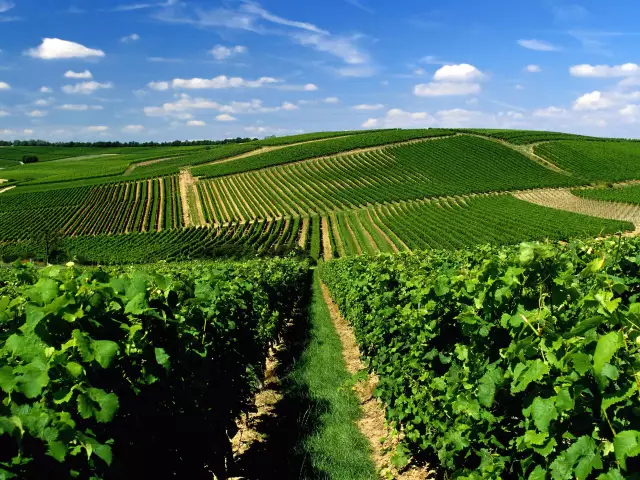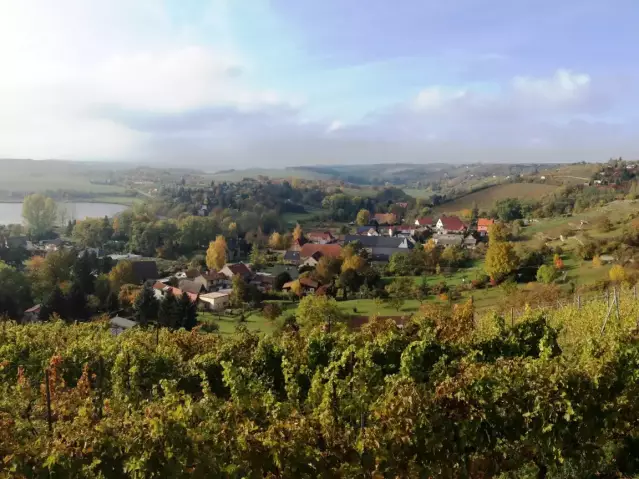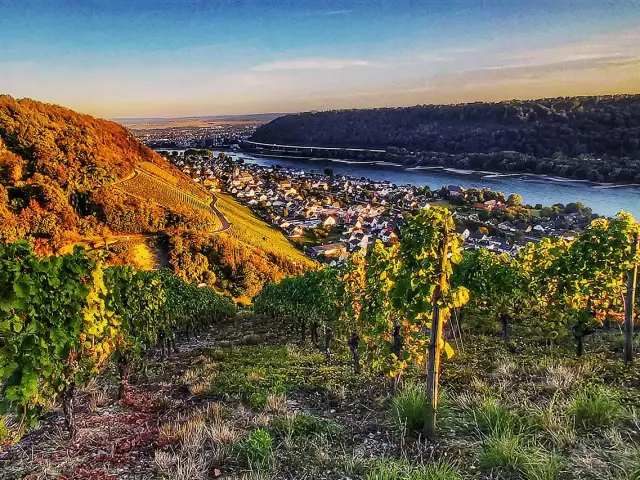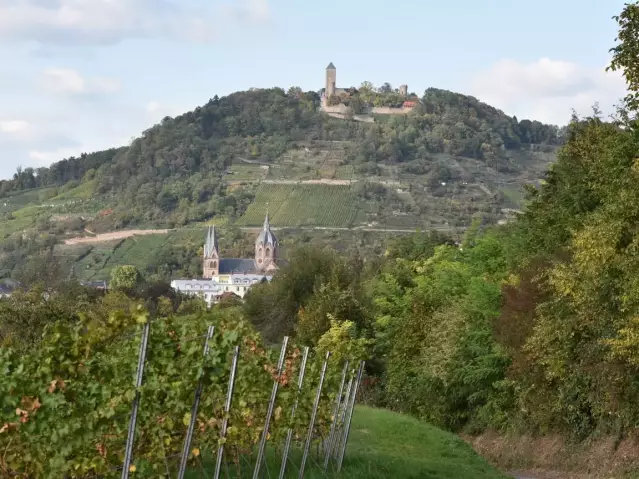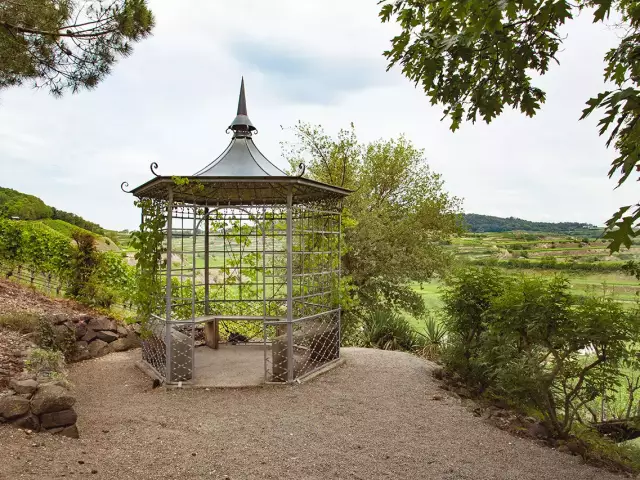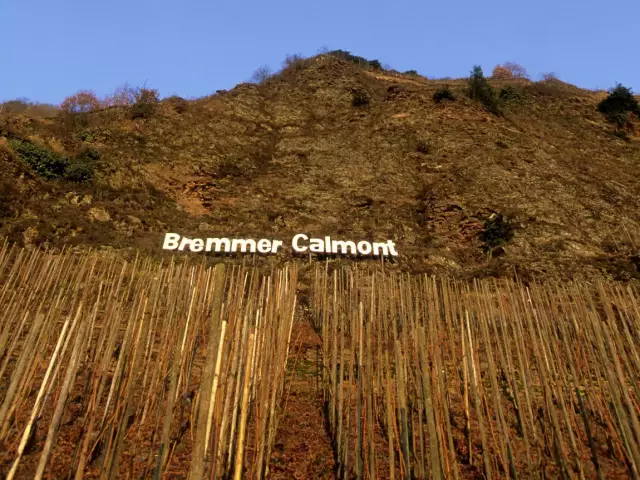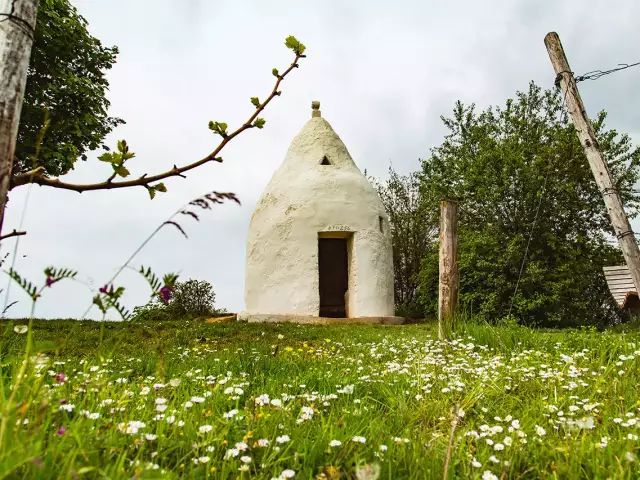Our regions
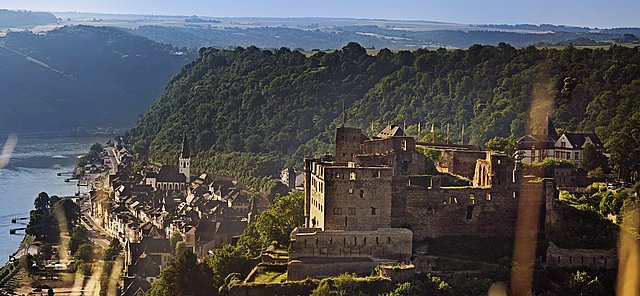
Hundreds of thousands of tourists visit the 13 German wine-growing regions every year and discover magnificent landscapes, fascinating people, beautiful wine villages and countless vineyards, winegrowers' cooperatives and wineries. Charming landscapes, culture, hospitality and enjoyment form a wonderful combination.
Facts
-
13
Growing areas
-
103.000 ha
Vineyard area
-
15.200
Wine producers
Ahr
With 529 hectares of vineyards, the Ahr is one of the smallest wine-growing regions in Germany. Mainly red wines thrive on the steep slopes above the river.
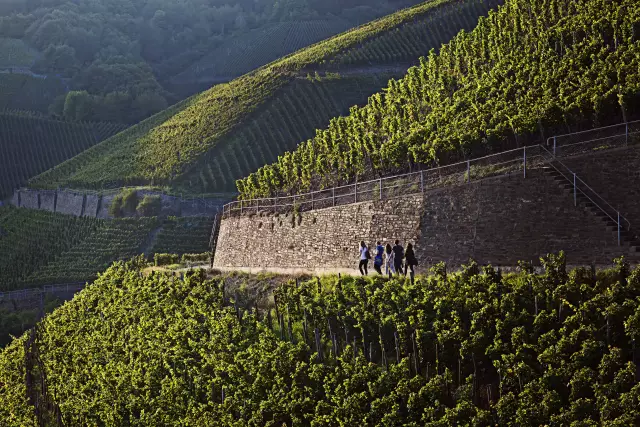
Baden
The Baden winegrowing region, with 15,727 hectares of vineyards the third largest in Germany, extends in a north-south direction over a length of about 400 kilometers.
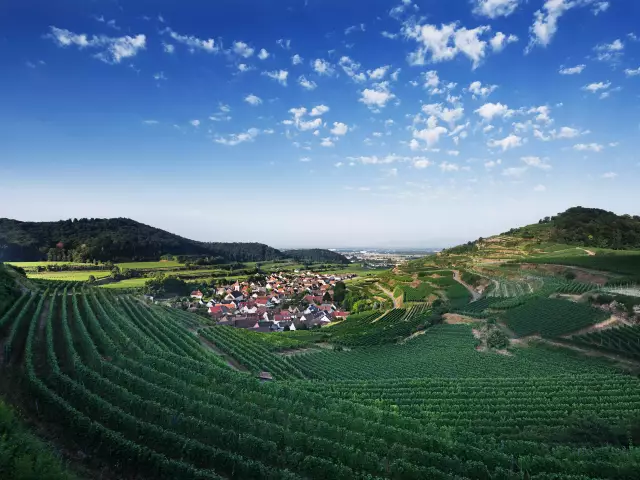
Franken
The Bocksbeutel is the trademark of Franconian wine, which has been cultivated for over 1200 years, especially along the Main River. Franconian wine country is bordered by the Rhön Mountains to the north, the Steigerwald Forest to the east, the Tauber Valley to the south and the Spessart Mountains to the west.
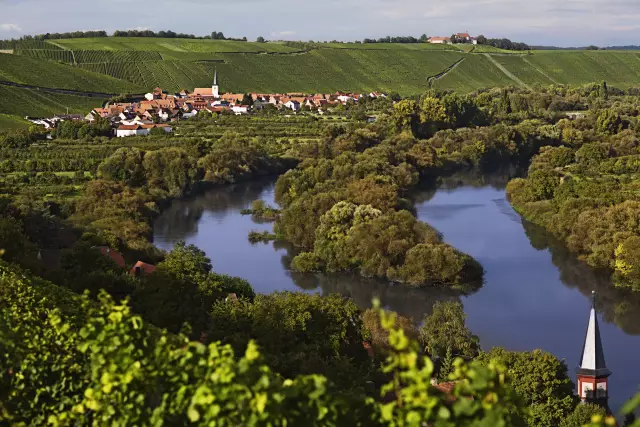
Hessische Bergstraße
When it is still cool in March or April in some places, the almond blossom already begins on the Hessian Bergstrasse. Spring usually starts a few days earlier.
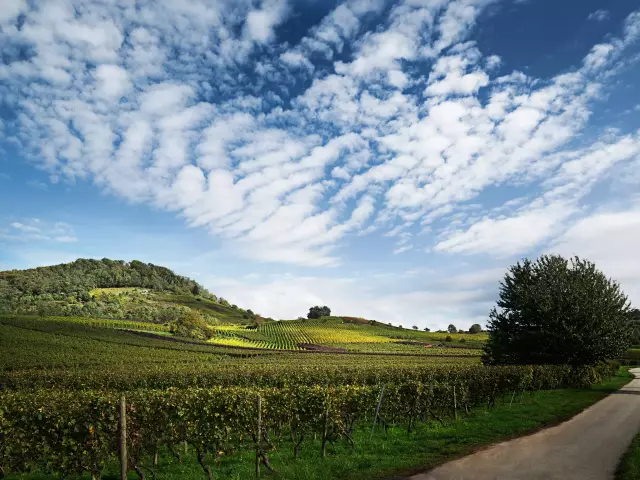
Pfalz
The Palatinate has many superlatives: the largest wine festival in the world in Bad Dürkheim, but also the first and most famous wine street, the German Wine Street.
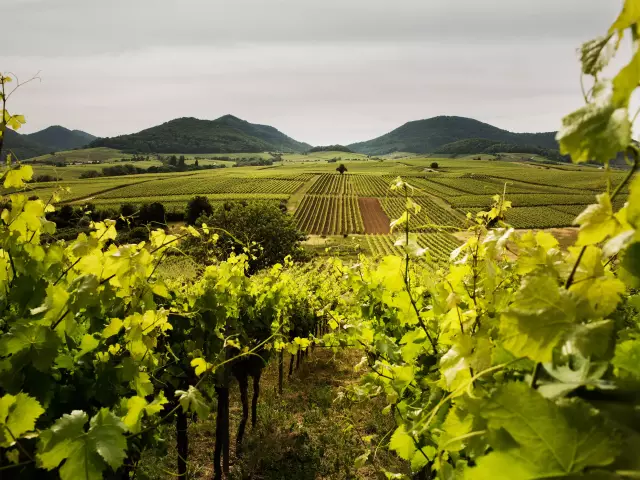
Rheingau
The Rheingau wine-growing region is located in the state of Hessen and is one of the most renowned wine regions in Germany. The vineyards cover a total of 3,180 hectares (as of 2024). They start at Frankfurt/Main and run for about 50 kilometres over Wiesbaden along the right bank of the Rhine to Lorch, north of Rüdesheim.
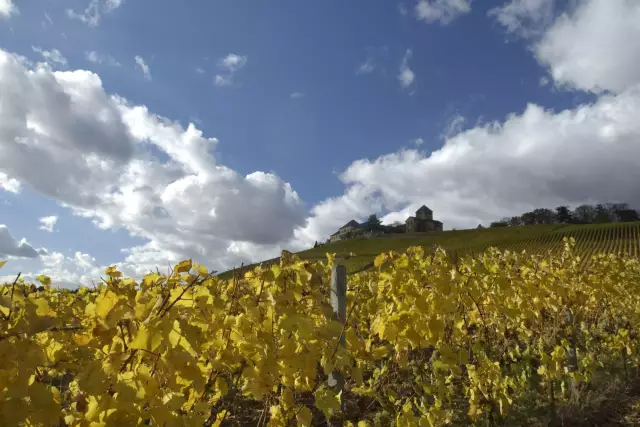
Rheinhessen
A thousand hills and vines as far as the eye can see - that is Rheinhessen, Germany's largest wine-growing region.
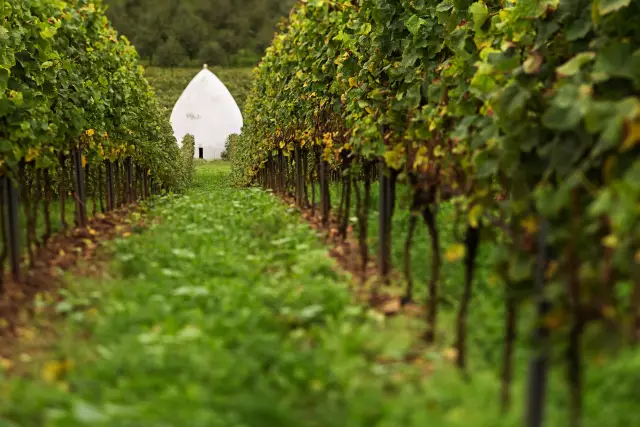
Mittelrhein
The Rhine Valley between Bingen and Bonn offers a picturesque backdrop. Vineyards crowned by castles and medieval towns adorn the banks of the Rhine.
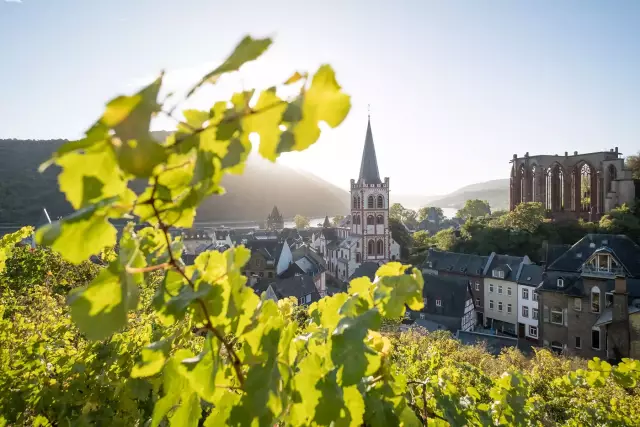
Mosel
The wine-growing region along the Moselle, Saar and Ruwer rivers is considered Germany's oldest wine region. The Romans brought viticulture to the Moselle on a grand scale.
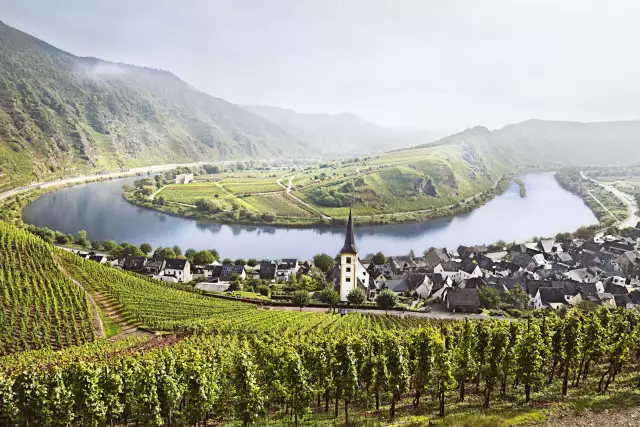
Nahe
On the Nahe, visitors can expect gentle greenery, romantic river valleys and dramatic rock formations and also hospitable winegrowers and their diverse wines.
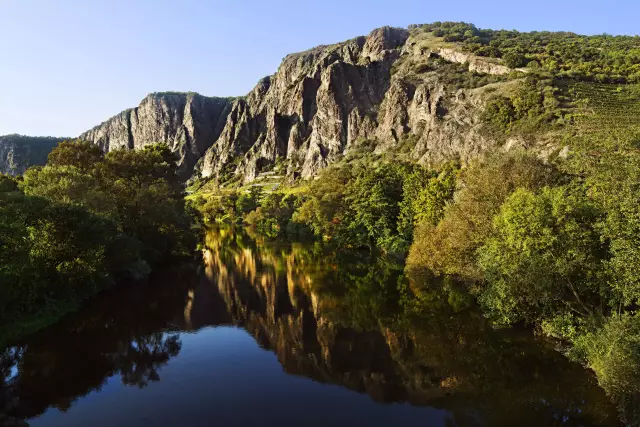
Saale-Unstrut
Two rivers give the growing region its name, as the mostly terraced vineyards are mainly located in the narrow river valleys of the Saale and Unstrut rivers.
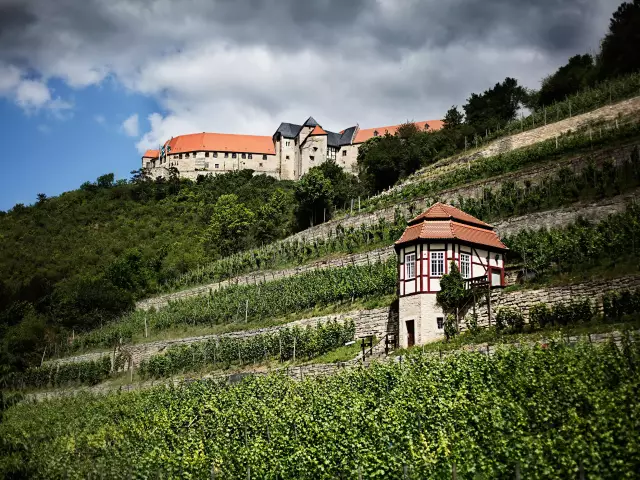
Sachsen
Sachsen is the easternmost and, with 522 hectares, one of the smallest wine-growing regions in Germany. The vineyards only begin near Dresden, at 51 degrees north latitude.
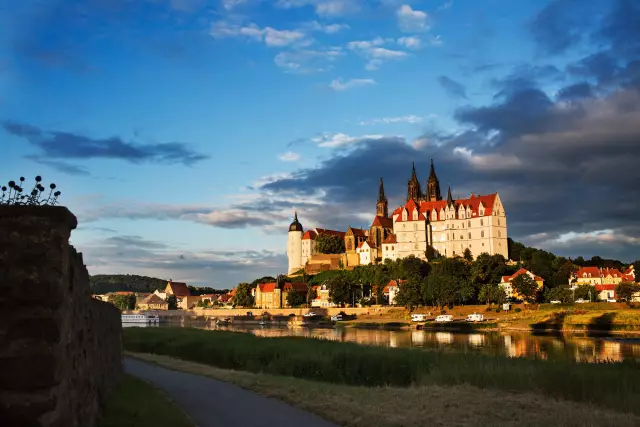
Württemberg
Among the major German wine-growing regions, Württemberg ranks fourth with 11,392 hectares. Here, red grape varieties dominate the vineyards with 65 percent.
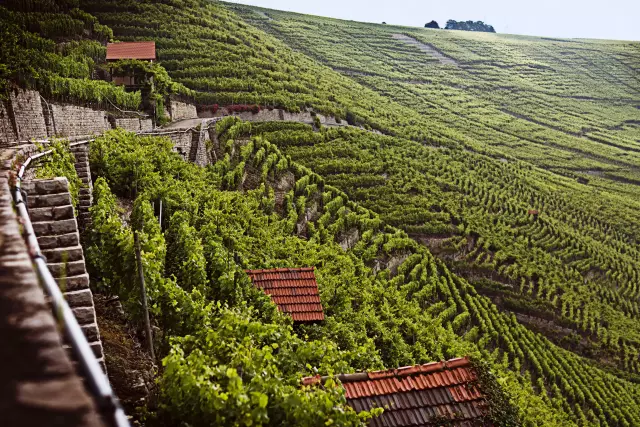
Beautiful winesights
Quotes
Highlights of wine culture
-
Highlight Professor Blankenhorn Wine Trail of the Freiburg State Winery Professor Blankenhorn Wine Trail of the Freiburg State Winery
Learn more
Wine hike Hiwweltour Heideblick
